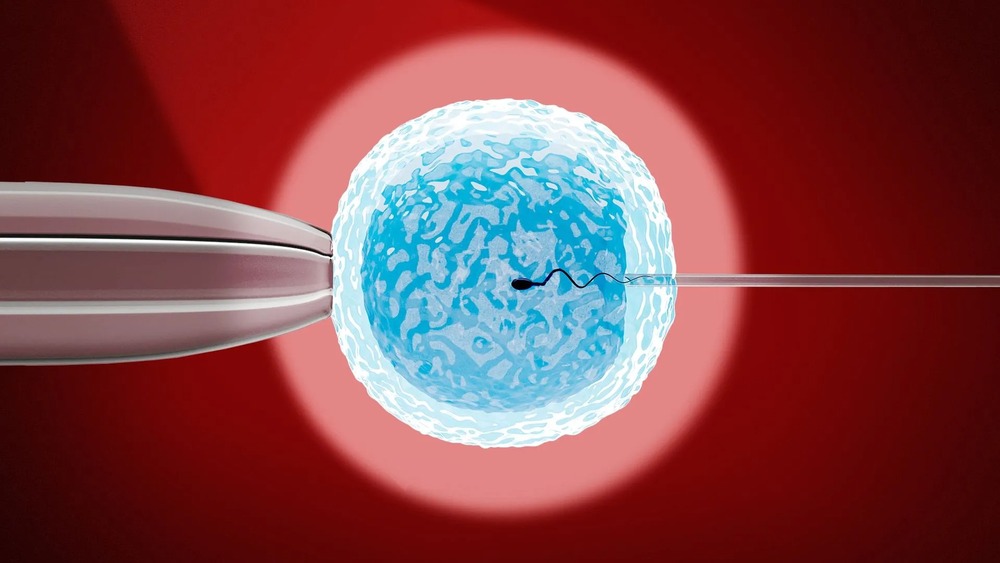In recent years, the conversation around infertility has evolved significantly. While many people associate infertility primarily with women, it’s crucial to recognize that male infertility is a significant factor in many couples' struggles to conceive. In fact, studies show that male factors contribute to approximately 40-50% of infertility cases. This blog aims to provide husbands with essential information about male infertility and the IVF process, ensuring that they are well-informed and prepared for the journey ahead.

Understanding Male Infertility
Male infertility can stem from various factors, including hormonal imbalances, genetic issues, lifestyle choices, and medical conditions. Here are some key statistics that highlight the prevalence and causes of male infertility:
| Cause of Male Infertility | Percentage of Cases |
|---|---|
| Hormonal Imbalances | 10-15% |
| Genetic Factors | 5-10% |
| Medical Conditions (e.g., diabetes, infections) | 20-30% |
| Lifestyle Factors (e.g., smoking, obesity) | 30-40% |
| Unknown Causes | 20% |
As you can see, lifestyle choices play a significant role in male fertility. Factors such as smoking, excessive alcohol consumption, poor diet, and lack of exercise can negatively impact sperm quality and overall reproductive health.
The IVF Process: A Brief Overview
In vitro fertilization (IVF) is a widely used assisted reproductive technology that can help couples facing infertility. The IVF process typically involves several steps:
- Ovarian Stimulation: Hormonal medications are administered to stimulate the ovaries to produce multiple eggs.
- Egg Retrieval: Once the eggs are mature, a minor surgical procedure is performed to retrieve them.
- Sperm Collection: A sperm sample is collected from the male partner, which can be done through ejaculation or surgical extraction if necessary.
- Fertilization: The retrieved eggs are combined with the sperm in a laboratory setting to facilitate fertilization.
- Embryo Culture: The fertilized eggs (embryos) are monitored for development over several days.
- Embryo Transfer: One or more healthy embryos are selected and transferred into the female partner's uterus.
IVF Success Rates
Understanding the success rates of IVF can help couples set realistic expectations. Here’s a table that outlines the average success rates based on age:
| Age Group | Success Rate per Cycle |
|---|---|
| Under 35 | 40% |
| 35-37 | 30% |
| 38-40 | 20% |
| Over 40 | 10% |
These statistics indicate that age is a significant factor in IVF success. Younger women generally have higher success rates, but it’s essential to remember that every couple's situation is unique.
Preparing for IVF: What Husbands Can Do
As a husband, your support is invaluable during this challenging time. Here are some ways you can prepare for the IVF process:
-
Educate Yourself: Understanding the IVF process and male infertility can help you feel more empowered. Websites like American Society for Reproductive Medicine offer a wealth of information.
-
Maintain a Healthy Lifestyle: Encourage healthy habits, such as a balanced diet, regular exercise, and avoiding harmful substances. This can improve sperm quality and overall health.
-
Be Emotionally Supportive: The IVF journey can be emotionally taxing. Be there for your partner, listen to their concerns, and offer reassurance.
-
Attend Appointments Together: Being present during medical appointments can help you both feel more connected and informed about the process.
-
Consider Counseling: If the stress becomes overwhelming, seeking professional help can provide coping strategies and emotional support.
The Financial Aspect of IVF
IVF can be a significant financial investment. Understanding the costs involved can help couples plan better. Here’s a breakdown of typical expenses associated with IVF:
| Expense | Estimated Cost |
|---|---|
| Initial Consultation | $200 - $500 |
| Ovarian Stimulation Medications | $3,000 - $5,000 |
| Egg Retrieval | $1,500 - $3,000 |
| Fertilization and Embryo Culture | $1,000 - $2,500 |
| Embryo Transfer | $1,000 - $2,000 |
| Total Estimated Cost | $12,000 - $15,000 per cycle |
It’s important to check with your insurance provider, as some plans may cover part of the costs associated with IVF. Additionally, many clinics offer financing options to help manage expenses.
Conclusion
Male infertility is a critical aspect of the fertility conversation that deserves attention and understanding. As a husband, being informed about the causes of male infertility and the IVF process can empower you to support your partner effectively. Remember, you are not alone in this journey, and there are resources available to help you navigate the challenges ahead.
By maintaining a healthy lifestyle, being emotionally supportive, and understanding the financial implications, you can play a vital role in the IVF process. For more information on male infertility and IVF, consider visiting Resolve: The National Infertility Association, which provides valuable resources and support for couples facing infertility challenges.
Together, you and your partner can face the journey of IVF with knowledge, strength, and hope. 🌟




